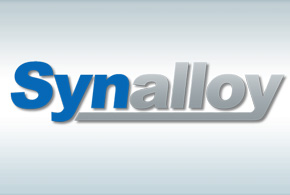For many organizations, enterprise resource planning (ERP) is the glue that holds together the fabric of the organization. It provides the data, insight and automation that are essential for operating effectively in today’s digital business environment.
At Synalloy, a manufacturer of products and systems incorporating metals and chemicals, the need for a more flexible and agile ERP framework had moved to center stage a few years ago. “We required an ERP system that would help us manage operations and aid in acquisitions,” explains Mike Padden, corporate director of IT.
The company, which operates facilities in Georgia, South Carolina, Tennessee and Texas, manufactures items for industries ranging from consumer goods and food producers to automotive and oil and gas companies. Because Synalloy relies on a shared services model and aggressively targets other firms for acquisition, it operates with different companies and divisions.
Consequently, “We needed a system that offered greater flexibility, so that employees could log into each individual company and handle various functions without encountering problems,” Padden explains. “We have very different types of businesses with different needs, but we require a standardized set of processes.”
In the past, the organization tapped a mix of ERP vendors, and this led to a complex, unwieldy and expensive IT and business framework. It also boosted demands on the IT department.
In many cases, employees attempting to handle tasks had to use four or five different ERP systems and handle processes manually. When they required data in a particular system, it could require lengthy load times.
Searching for a Better ERP Framework
As a result, Synalloy began searching for a new, better ERP framework. After exploring different options and vendors, the company opted to migrate to an ERP system from Deacom and went live with it about seven months later.
Since then, the company has migrated all of its businesses onto the platform, which runs on virtual servers in a private cloud. Padden says that the company has gained a great deal of flexibility, particularly when it’s necessary to make changes or embark on upgrades. It can also add server capacity or disk space in a matter of hours or a few days rather than weeks.
“Any changes are now part of the core code, and there’s no longer a need to update systems manually, including following upgrades,” he says. The end result is a far more streamlined environment and one that provides far greater visibility into operations and specific areas such as payroll, accounts receivable, scheduling and reporting on everything from raw materials to finished goods.
In addition, the ERP system has made it easier to conduct audits and conform with regulatory and compliance issues, including Sarbanes-Oxley. Finally, it has dramatically improved security by introducing a unified framework and consistent controls across the organization. In the end, the structured framework has delivered clear benefits for both individual departments and the business as a whole.
“We hold process engineering sessions where groups, such as the sales team, come in and discuss their processes, needs and requirements,” Padden reports. “Through these sessions— and with the ERP framework in place—we are able to design specific criteria that these groups require. This has helped us better address the needs of our customers.”









